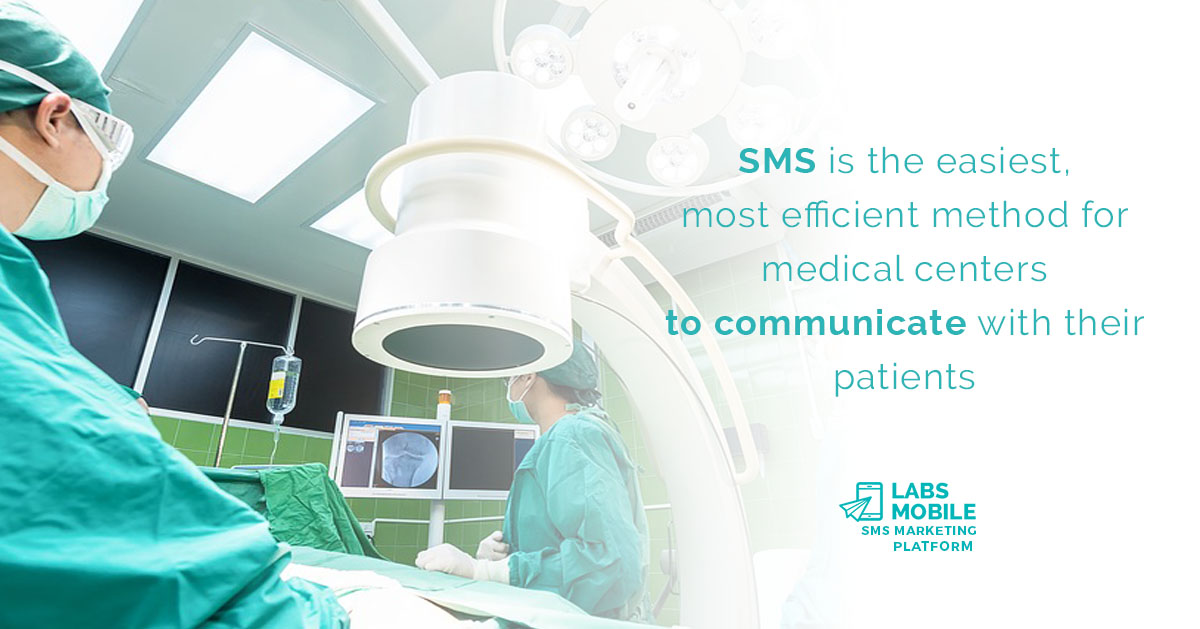Last update: Jun 28, 2022
How has the health sector improved patient care with SMS marketing?


There are various areas in which marketing strategies have established a strong foothold, but one in particular that has generated a truly mutually beneficial interaction is in the health sector.
Improvements in relationships with patients, internal communication within medical centers and the reduction of waiting times are the most significant successes of using SMS campaigns in a healthcare setting.
Over recent years, the use of SMS in a variety of areas in health has allowed greater fluidity in medical practice. Sending alerts and messages through Short Message Service has become a fundamental tool in the day-to-day running of hospitals and medical centers.
Facilitating administration, customer care (to the patient) and implementing marketing strategies are the typical objectives of a business and are all helped by utilizing SMS platforms. We describe several of these objectives below:
SMS messaging is the easiest and most efficient method of communication that a medical center can have with its patients thanks to its high rates of delivery and opening. Automating the programming of visits, which works by sending appointment reminders via SMS, liberates staff from administrative pressure and saves on telephone bills.
Improvements in time management is another advantage. Sending appointment reminders via SMS can immediately provide patients with key details such as the center, date and exact time of the appointment.
SMS marketing is a very useful tool for linking medical history to an SMS programming tool, configuring SMS messages with details entered into the right fields of a patient’s medical card.
The connection between the database and SMS platforms means you can program reminders to help people to remember: to take their medication, when their prescription ends, to pick up medication from the pharmacy or medical center or when they need to stop taking prescribed medication.
For some tests and diagnoses, doctors require an appointment to talk to the patient about the importance of the results. However, in cases when direct contact between a doctor and patient isn’t essential, patients having the option to receive this information directly to their mobile is an advantage.
Utilizing the SMS platform, medical centers that suffer from chronically long waiting times for patients are able to manage their time better. This would be reinvested directly into a reduction of administrative and communication costs.
By creating a bi-directional channel, medical centers are able to collect information about the standard of care patients receive or specific information about the health of their patients.
One important aspect is to utilize accessible surveys through short codes which are easy to remember. SMS messaging can improve services by offering a rapid and effective communication system.
Every patient needs different follow up treatment. Some do not need a pre-planned visit to a medical center because their condition doesn’t require it.
By utilizing bidirectional SMS you can obtain brief and simple feedback from patients (for example, a simple YES or NO). Using this system, medical staff can find out whether they need to book another appointment for the patient, or if it isn’t necessary.
Owing to the need for medical centers to be available 24 hours per day, 7 days a week, and 365 days per year, the health sector requires a trustworthy internal communication system. SMS alerts represent an excellent structure for internal communication.
SMS can be used to notify staff about issues such as changes in shifts, team meetings – everything urgent – but also anything which involves organizing people, like a birthday celebration. A service like this helps to release the day-to-day pressure on health professionals.